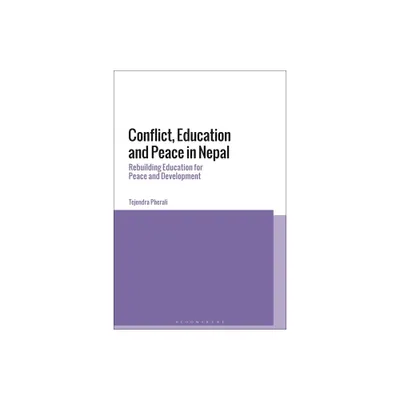Home
Menstruation Nepal: Dignity Without Danger
Loading Inventory...
Barnes and Noble
Menstruation Nepal: Dignity Without Danger
Current price: $180.00


Barnes and Noble
Menstruation Nepal: Dignity Without Danger
Current price: $180.00
Loading Inventory...
Size: Hardcover
*Product Information may vary - to confirm product availability, pricing, and additional information please contact Barnes and Noble
This book examines the complexities of menstrual beliefs and practices in Nepal. Taking an interdisciplinary and intersectional approach, it explores and promotes the rights of women, girls, and people who menstruate to a dignified and healthy menstruation.
The volume
• collates current research in Nepal from local academics, early career researchers, and the Dignity Without Danger research project;
• provides a more nuanced understanding of the complex stigmas and taboos that surround menstruation;
• highlights the importance of rethinking ideas of religion, gender, menstruation, stigma and taboos, cultural practises, and discrimination;
• proposes a counter-narrative that places sociological studies at the heart of the discussion surrounding menstruation; and
• calls for more collaborative action research to strengthen the links between academia and activism across disciplines.
An authoritative contribution, the book will be of interest to scholars and researchers of gender studies, public health, sociology, human rights, South Asian studies, medical sociology, cultural studies, and social medicine, particularly for those concerned with Nepal.
The volume
• collates current research in Nepal from local academics, early career researchers, and the Dignity Without Danger research project;
• provides a more nuanced understanding of the complex stigmas and taboos that surround menstruation;
• highlights the importance of rethinking ideas of religion, gender, menstruation, stigma and taboos, cultural practises, and discrimination;
• proposes a counter-narrative that places sociological studies at the heart of the discussion surrounding menstruation; and
• calls for more collaborative action research to strengthen the links between academia and activism across disciplines.
An authoritative contribution, the book will be of interest to scholars and researchers of gender studies, public health, sociology, human rights, South Asian studies, medical sociology, cultural studies, and social medicine, particularly for those concerned with Nepal.


















